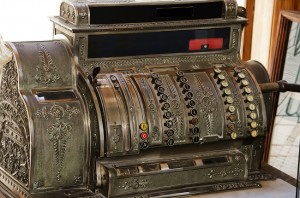By Ryan C. Wood
We have all heard this story many times: a homeowner gets behind on their mortgage payments and cannot catch up to pay the lump sum now due. The house is foreclosed on and the new homeowners then file an unlawful detainer action against the old homeowner to have the sheriff evict the old homeowner. But what happens if the old homeowner files for bankruptcy protection after getting an unlawful detainer judgment entered against them, but before getting evicted? Does a subsequent eviction violate the bankruptcy automatic stay? The Ninth Circuit Bankruptcy Appellate Panel recently decided that the eviction does actually violate the automatic stay.
The circumstances detailed above are exactly what happened in the case of In re Perl, No. 13-1328 (B.A.P. 9th Cir. May 30, 2014). The homeowner, Sholem Perl, and another joint tenant (“the Perls”) fell behind on their mortgage payments and the property was sold to Eden Place in a foreclosure sale. The trustee’s deed was recorded in a timely manner. Eden Place then filed an unlawful detainer action against the Perls when they refused to leave the foreclosed home. The Perls filed a lawsuit against Eden Place and several others for wrongful foreclosure, violation of the Homeowner Bill of Rights, unfair business practices and breach of contract. Eden Place counter-sued. The judge entered a judgment against the Perls for the unlawful detainer action and the sheriff posted a lockout notice. Mr. Perl filed a skeleton petition on June 20, 2013 seeking bankruptcy protection under Chapter 13 of the Bankruptcy Code. Eden Place filed a Motion for Relief from Stay on June 24, 2013, but the sheriff proceeded with a lockout on June 27, 2013, before the motion was heard by the court. The Perls were now officially evicted from the property.
Mr. Perl’s bankruptcy attorney filed an Emergency Motion to Enforce the Automatic Stay and the court heard the Emergency Motion and Eden Place’s Motion for Relief from Stay on June 28, 2013. The bankruptcy court indicated that it seemed Eden Place violated the automatic stay by evicting the Perls prior to receiving relief from the automatic stay. Eden Place argued that Mr. Perl did not have any legal or equitable interest in the property since the property was foreclosed on and the trustee’s deed was recorded. Eden Place argued that Mr. Perl was merely a squatter on the property with no possessory rights. The court disagreed. The court indicated that the automatic stay applies even when there is bare possessory interest coupled with causes of action or claims for the right to possession. The automatic stay is very broad. “The automatic stay applies even to the more limited bundle of rights that still exists. It may not even be a bundle. It might just be the opportunity to seek some relief.” In re Perl, No. 13-26126 (Bankr. C.D. Cal. 2013). The bankruptcy court held that the eviction was a violation of the automatic stay and was therefore void.
The Bankruptcy Appellate Panel agreed with the bankruptcy court. In order to determine if Eden Place violated the automatic stay they needed to see if Mr. Perl had any interest in the property. The court held that Mr. Perl’s physical occupation of the property gave him a possessory interest in California law and he was therefore protected by the automatic stay. The court further went on to say that there was a willful violation of the automatic stay because Eden Place knew about the bankruptcy filing and still continued with the eviction. Even though there was no bad faith because Eden Place thought Mr. Perl did not have any legal or equitable interest in the property, it was still a willful violation. The eviction was therefore void. Eden Place appealed this decision to the Ninth Circuit Court of Appeals. In all fairness to Eden Place they legally foreclosed on the property, then legally filed and obtained a judgment in an unlawful detainer action to evict the former homeowner. This is not a quick or cheap process. At the very end the Perls and their bankruptcy lawyer filed an emergency skeleton petition to stop their eviction from a house they stopped paying for and no longer own. What is not discussed is whether the Perls’ even have a feasible reorganization case to begin with. It will be interesting to find out how the Ninth Circuit Court of Appeals holds on this issue and how they get there. If the prior homeowner does in fact have actionable claims regarding the purchase, loans or foreclosure of the property and they possess the property still there is a reasonable argument that the automatic stay should apply seems reasonable.


